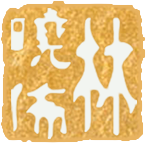Mother Morphine (Newsletter No. 62)
I recently listened to this interview with Gabor Maté. I didn’t know him or what I was supposed to think of him, but I knew he was famous. I didn’t agree with everything said but the conversation was thought-provoking. Maté connected oft-subconscious dots and made them sound as obvious as the moon.
One of those dots was that endorphin stands for endogenous morphine. Morphine is for pain relief, endorphins are for pain relief. Endorphins also promote bonding between parent and infant. When you smile, they smile, and vice versa. A neglected child has starved endorphin receptors, making them a prime receiving receptacle for opioids. For many people broken this way, the first time they get a taste of opioids is the first time they feel normal in their lives. Maté says that when he asks heroin addicts what’s so great about heroin, they respond:
“It’s like you’re sick and you’re ill with a fever. And your mother wraps you in a warm blanket, sits you on her lap and gives you warm chicken soup. That’s what the heroin feels like.”
“Love.”
“It feels like a warm soft hug.”
“Mother, father, love.”
Isn’t that particularly tragic? I mean it’s all tragic when it comes to addiction, but it’s a particular type of tragic when the high you seek is the one that replicates the feeling of being a vulnerable cuddled child tucked into bed and kissed on the forehead. Worthy of love. Versus the type of high that replicates the cliff-diving trampoline-jumping rush of a thrill-seeking teenager. Heroin is considered the most addictive drug in the world, cocaine is second.
Crack hits the escapism button. Heroin hits the nostalgia button?
So if the U.S. has an opioid crisis (fentanyl, oxycontin, Percocet, Vicodin), does that mean we are particularly addicted to Mother’s Love, or that we have a particular lack of it that thus encourages the addiction? Is that why inner-child healing is so buzzy over here yet we hate children?
Ibogaine is considered the anti-addictive drug, in other words, the least addictive drug in the world. The feeling it replicates is sometimes described as the forced viewing of one’s deepest traumas one by one, leading one to reclaim agency over one’s thoughts (and actions). In other words, growing up.
***
Piece of the day:
The Teishin Tool. Different from its Gua Sha cousin in that the Teishin is meant to gently swirl and alight pain points rather than a more vigorous scrape (also necessary).
Because if you are an adult, and not a child, even if you had a terrible childhood, you are in control of your own pain relief.
All the best,
Kristy
PS. Life Of Crime 1984-2020
PPS. Harry Potter
PPPS. Mad Men
